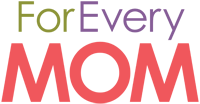My Dear Mama Friend,
I see you outside when our kids are playing. I see you at the pool in the summer. I see you at the bus stop all school year-long. But sadly, I don’t know you as well as I’d like.
Nevertheless, I know you’ve got a problem with porn. Why? Because it takes one to know one…
We need to talk, friend. About SEX. But unfortunately, it’s not a wine-and-chocolate girls night talk. It’s a “oh crap our kids are in trouble” talk. The reason I’m calling this emergency meeting, girlfriends? Is PORN. You see, my dear, we—me included—have a PORN problem. But we’re not alone. Every mom everywhere has a porn problem, and since the first step to recovery is admitting it, I’m here to say:
“My name is Jenny and I have a problem with porn.”
But let me explain, Mamas. Here goes nothing.
Recently, two prominent secular publications ran strong articles on the harmful effects of porn: TIME Magazine’s cover story for its April 11, 2016 issue was on porn and just a few days earlier on April 8th, The Washington Post published this powerful article by Gail Dines entitled “Is porn immoral? That doesn’t matter: It’s a public health crisis.”
I use the word “secular” above simply because this little diatribe you’re reading now (from yours truly) is being published on a faith-based website. But the TIME and Washington Post articles both make it clear that porn is harmful whether you think it is morally wrong or not, and as Dines says in her piece, “…the science is there. After 40 years of peer-reviewed research, scholars can say with confidence that porn is an industrial product that shapes how we think about gender, sexuality, relationships, intimacy, sexual violence and gender equality — for the worse.”
Moms, you and I have a problem with porn. And not the kind of problem where we watch too much of it (at least I don’t have that particular problem), but rather the kind where it is killing our kids’ sexuality (if it hasn’t already negatively affected our marriages.) If you’re around my age (38) or older, congrats: you’re one of the last to grow up without readily available internet porn. The sexual challenges we faced were far more tame that what our daughters will face and what our sons will have to be strong to resist. It sounds dramatic, but as Dines says, “the science is there.”
Porn isn’t just a private, personal matter anymore. It’s a public health crisis that all parents need to be informed about. It’s as destructive as any cancer, and it spreads much faster in a culture where it’s often times free, viewed as normal (“everyone does it!”), and very, very addicting. Dines cites a study of U.S. college men that showed that “83 percent reported seeing mainstream pornography, and that those who did were more likely to say they would commit rape or sexual assault (if they knew they wouldn’t be caught) than men who hadn’t seen porn in the past 12 months. The same study found that porn consumers were less likely to intervene if they observed a sexual assault taking place.”

